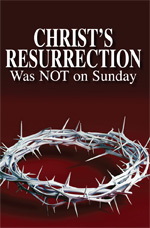The apostle Paul instructed, in I Timothy 2:12, “But I suffer not a woman to teach, nor to usurp authority over the man, but to be in silence.” He also instructed, in I Corinthians 14:34-35, “Let your women keep silence in the churches: for it is not permitted unto them to speak; but they are commanded to be under obedience, as also says the law. And if they will learn any thing, let them ask their husbands at home: for it is a shame for women to speak in the church.”
Paul is explaining the impropriety of women holding ecclesiastical authority over men within God’s Church (i.e., women are not to become elders or give sermons or sermonettes). In accordance with Paul’s teachings, The Restored Church of God does not ordain women into the ministry.
However, the New Testament does establish the ordination of deaconesses (Rom. 16:1; I Tim. 3:8-11). Aquila and Priscilla, a husband and wife who served under Paul, were apparently a deacon and deaconess. There was also in the Church then an extremely strong, effective teacher by the name of Apollos. His knowledge of Scripture was not entirely perfect, however, and “…when Priscilla and Aquila had heard, they took him unto them, and expounded unto him the way of God more perfectly” (Acts 18:26).
In this example, we find a man learning God’s Way more perfectly, through the instruction of a man and his wife. It is important to note that the two were not preaching from the pulpit, but rather had taken Apollos aside and instructed him together. No doubt, to fit with other scriptures, Aquila took the lead, with his wife in a support role.
Also notice Paul’s instruction in the book of Titus: “The aged women likewise, that they be in behavior as becomes holiness, not false accusers, not given to much wine, teachers of good things; That they may teach the young women to be sober, to love their husbands, to love their children, to be discreet, chaste, keepers at home, good, obedient to their own husbands, that the word of God be not blasphemed” (2:3-5).
The Old Testament, however, does contain some examples of teaching by extraordinary women. Among them are Miriam’s song (Ex. 15:20-21), Hannah’s prayer (I Sam. 1:11), and the teachings of Lemuel’s mother (Prov. 31). Again, it is important to note that in none of these examples were the women exercising ecclesiastical authority.


















